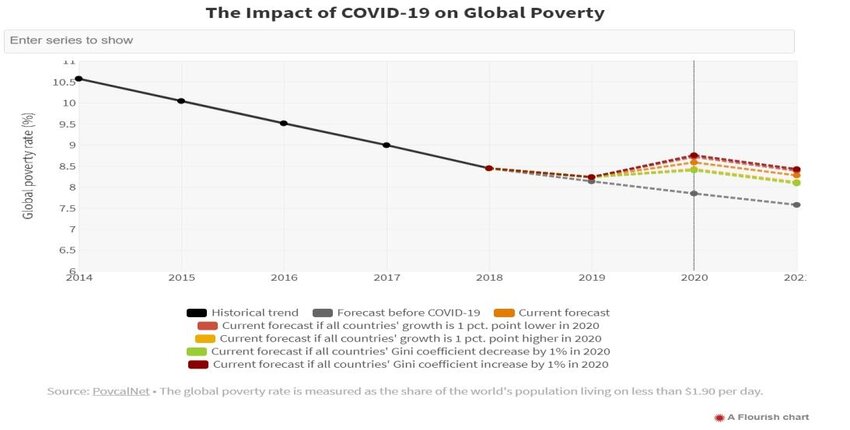
The sustainable development goals (SDGs) encompass a diverse array of human development objectives, with the primary target of eradicating poverty in all its forms by 2030. Progress over the past two decades has been notable, with significant strides made in improving living standards, reducing extreme poverty, addressing malnutrition, and enhancing human development capabilities worldwide. However, the advent of the COVID-19 pandemic threatens to undermine these hard-won gains.
COVID-19 has unleashed a wave of disruption that reverberates through economies, hampering individuals' ability to earn income and governments' capacity to generate revenue. While previous studies have projected trajectories toward achieving SDG 1 under various socio-economic scenarios, the pandemic introduces unprecedented uncertainty.
Initial analyses indicate a short-term exacerbation of poverty due to COVID-19. However, the longer-term implications remain less understood. The pandemic's multifaceted impacts on employment, education, healthcare, and social safety nets could potentially reverse progress made in poverty reduction, pushing millions back into extreme deprivation.
Addressing the implications of COVID-19 on global poverty necessitates comprehensive strategies encompassing economic recovery, social protection, healthcare access, and international cooperation. Mitigating the pandemic's toll on poverty requires concerted efforts at both national and global levels to safeguard the progress toward achieving SDG 1 and ensuring a more equitable and sustainable future for all.
